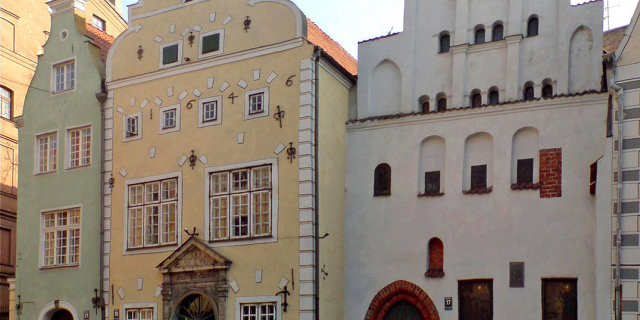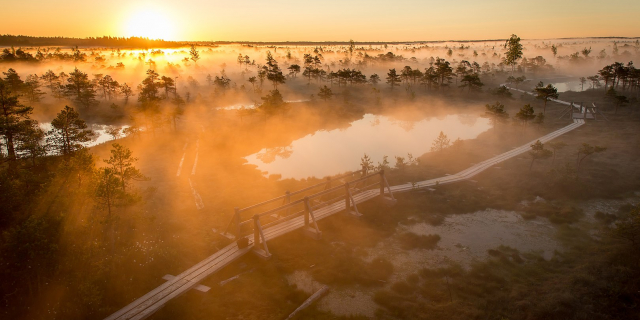Latvija
LatviaContext of Latvia
Latvia ( LAT-vee-ə, sometimes LAHT-vee-ə; Latvian: Latvija Latvian pronunciation: [ˈlatvija]; Latgalian: Latveja; Livonian: Lețmō), officially the Republic of Latvia (Latvian: Latvijas Republika, Latgalian: Latvejas Republika, Livonian: Lețmō Vabāmō), is a country in the Baltic region of Northern Europe. It is one of the three Baltic states, along with Estonia to the north and Lithuania to the south. It borders Russia to the east, Belarus to the southeast, and shares a maritime border with Sweden to the west. Latvia covers an area o...Read more
Latvia ( LAT-vee-ə, sometimes LAHT-vee-ə; Latvian: Latvija Latvian pronunciation: [ˈlatvija]; Latgalian: Latveja; Livonian: Lețmō), officially the Republic of Latvia (Latvian: Latvijas Republika, Latgalian: Latvejas Republika, Livonian: Lețmō Vabāmō), is a country in the Baltic region of Northern Europe. It is one of the three Baltic states, along with Estonia to the north and Lithuania to the south. It borders Russia to the east, Belarus to the southeast, and shares a maritime border with Sweden to the west. Latvia covers an area of 64,589 km2 (24,938 sq mi), with a population of 1.9 million. The country has a temperate seasonal climate. Its capital and largest city is Riga. Latvians belong to the ethnolinguistic group of the Balts and speak Latvian, one of the only two surviving Baltic languages. Russians are the most prominent minority in the country, at almost a quarter of the population.
After centuries of Teutonic, Swedish, Polish-Lithuanian, and Russian rule, which was mainly implemented through the local Baltic German aristocracy, the independent Republic of Latvia was established on 18 November 1918 after breaking away from the German Empire in the aftermath of World War I. The country became increasingly autocratic after the coup in 1934 established the dictatorship of Kārlis Ulmanis. Latvia's de facto independence was interrupted at the outset of World War II, beginning with Latvia's forcible incorporation into the Soviet Union, followed by the invasion and occupation by Nazi Germany in 1941 and the re-occupation by the Soviets in 1944, which formed the Latvian SSR for the next 45 years. As a result of extensive immigration during the Soviet occupation, ethnic Russians became the most prominent minority in the country. The peaceful Singing Revolution started in 1987 among the Baltic Soviet republics and ended with the restoration of both de facto and officially independence on 21 August 1991. Latvia has since been a democratic unitary parliamentary republic.
Latvia is a developed country with a high-income, advanced economy ranking 39th in the Human Development Index. It is a member of the European Union, Eurozone, NATO, the Council of Europe, the United Nations, the Council of the Baltic Sea States, the International Monetary Fund, the Nordic-Baltic Eight, the Nordic Investment Bank, the Organisation for Economic Co-operation and Development, the Organization for Security and Co-operation in Europe, and the World Trade Organization.


































